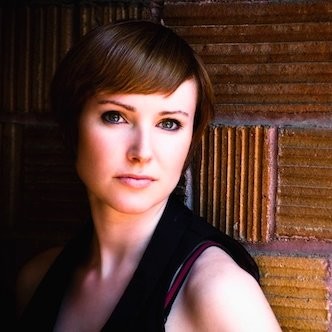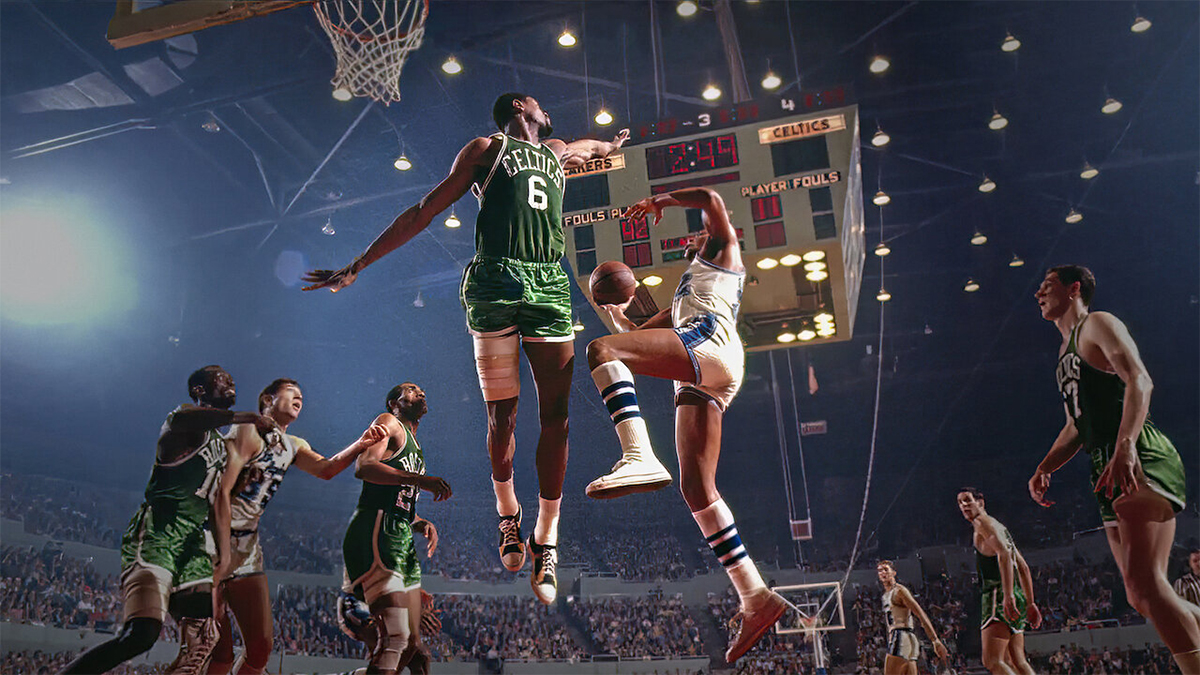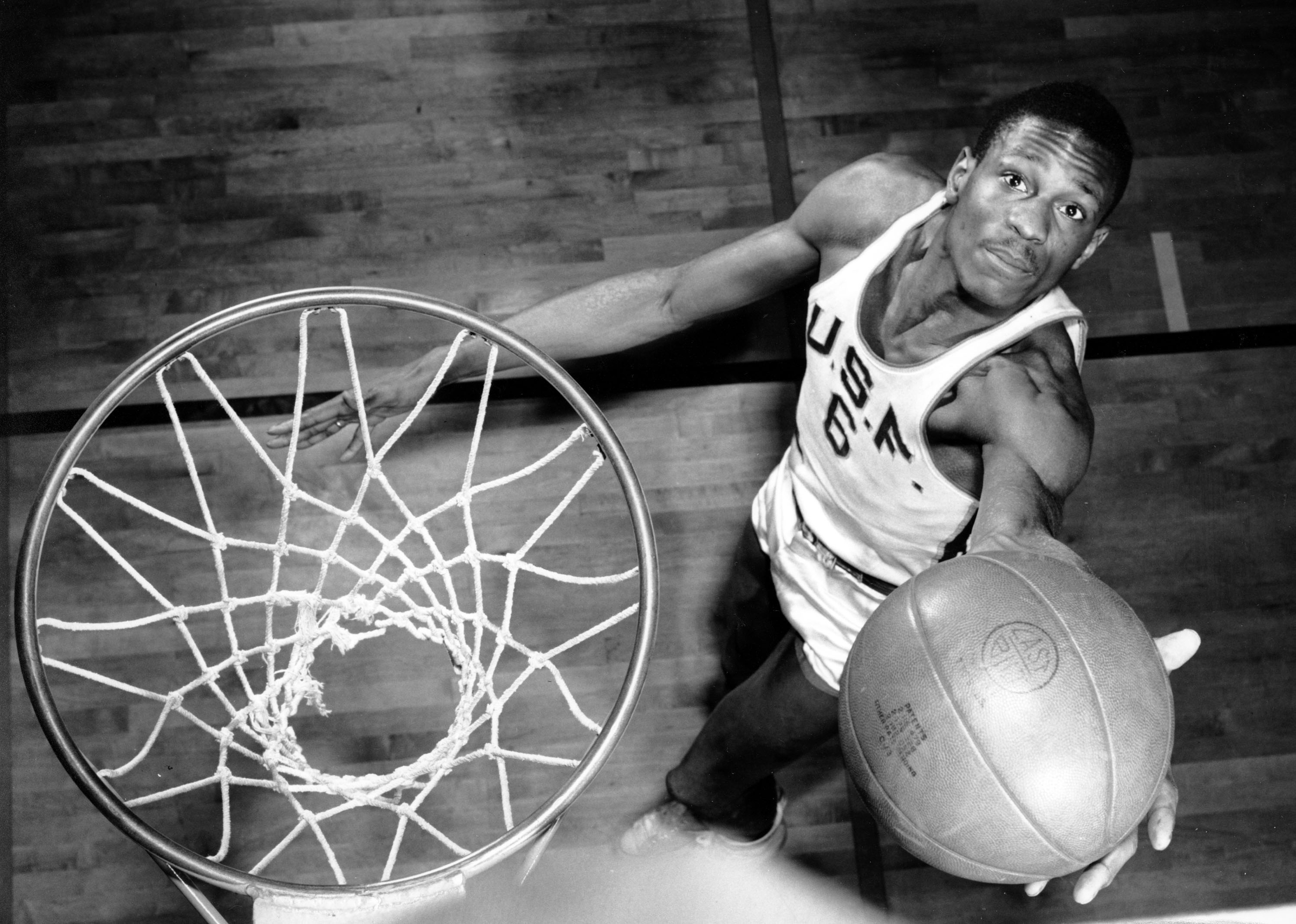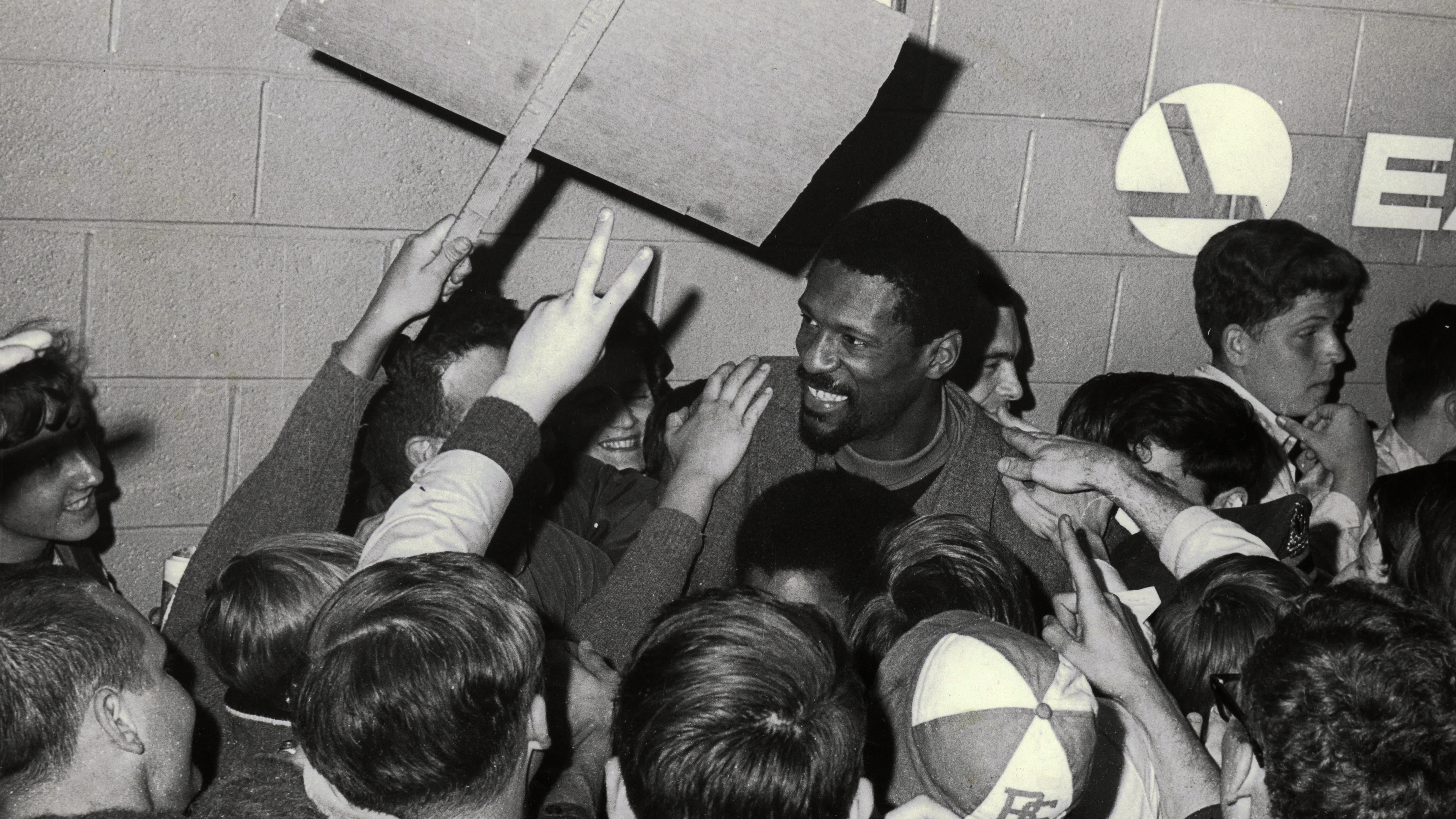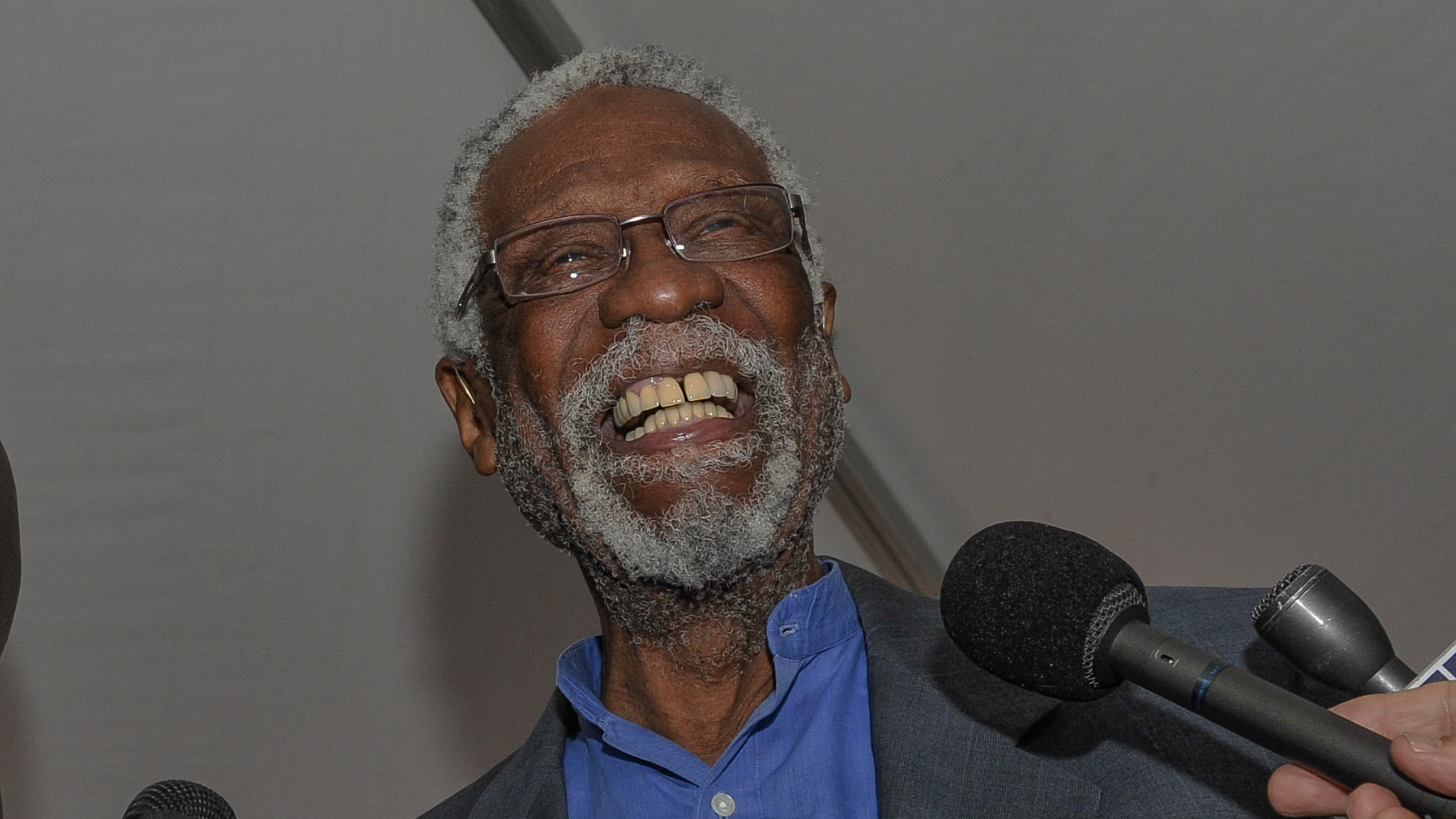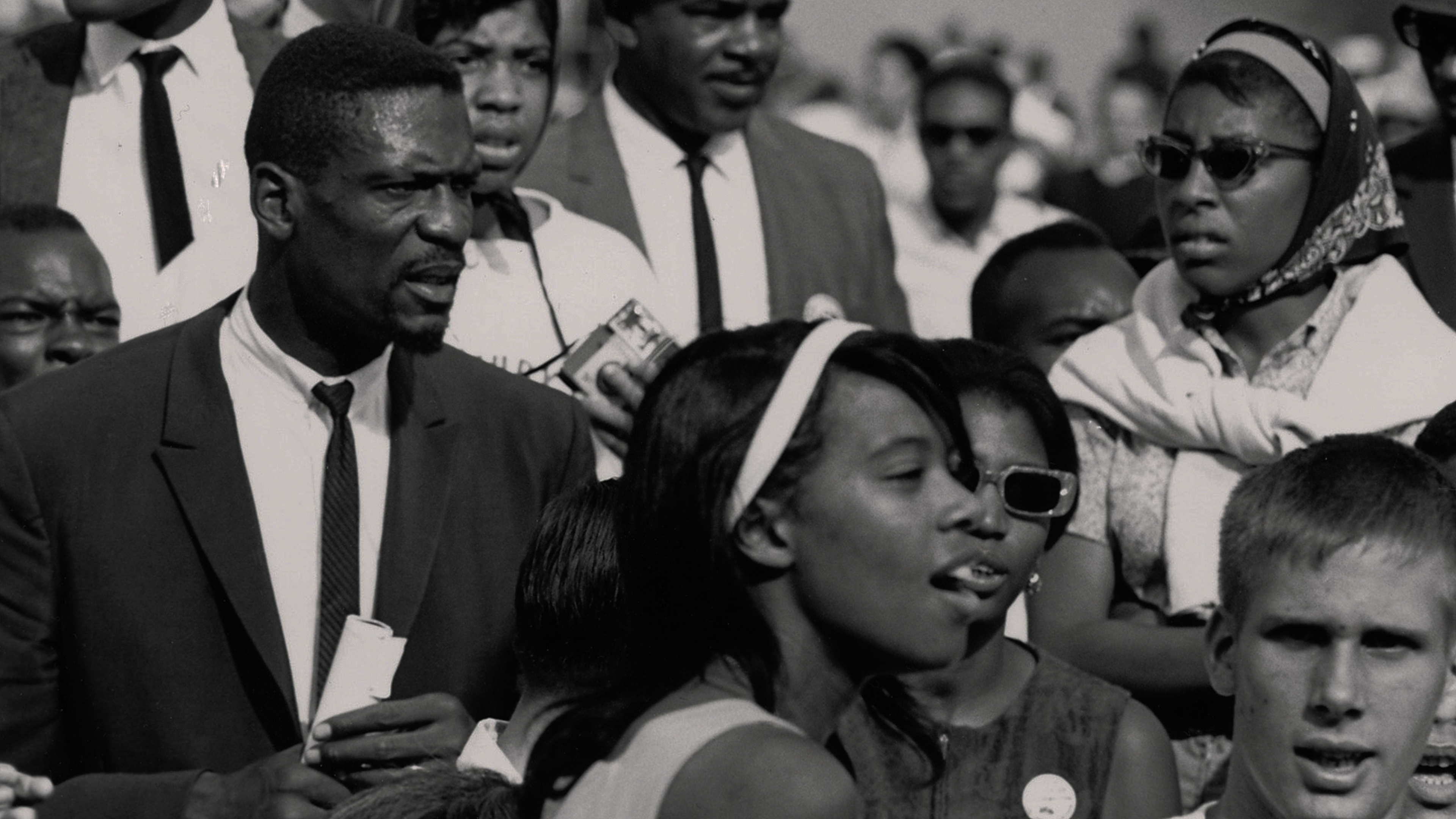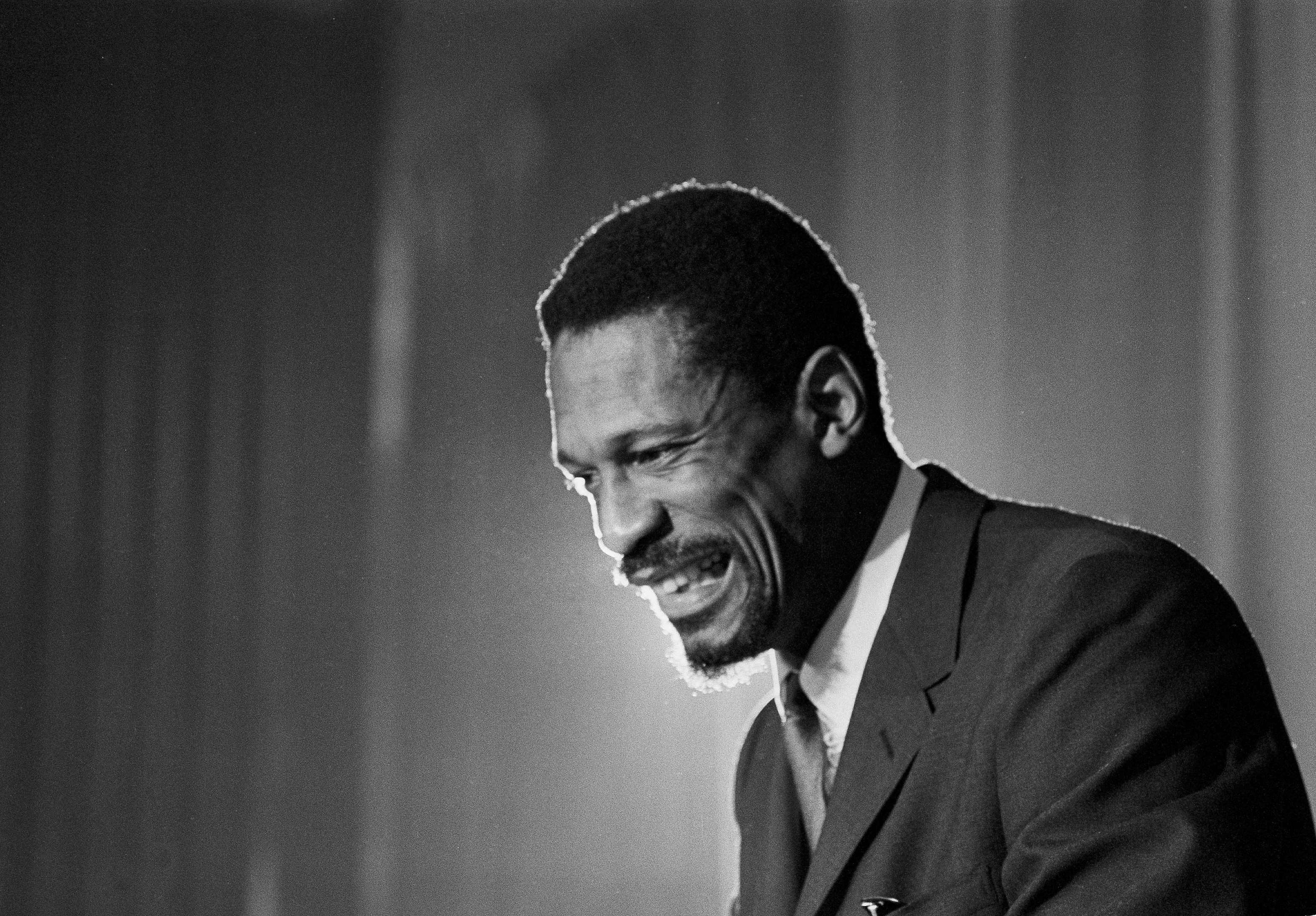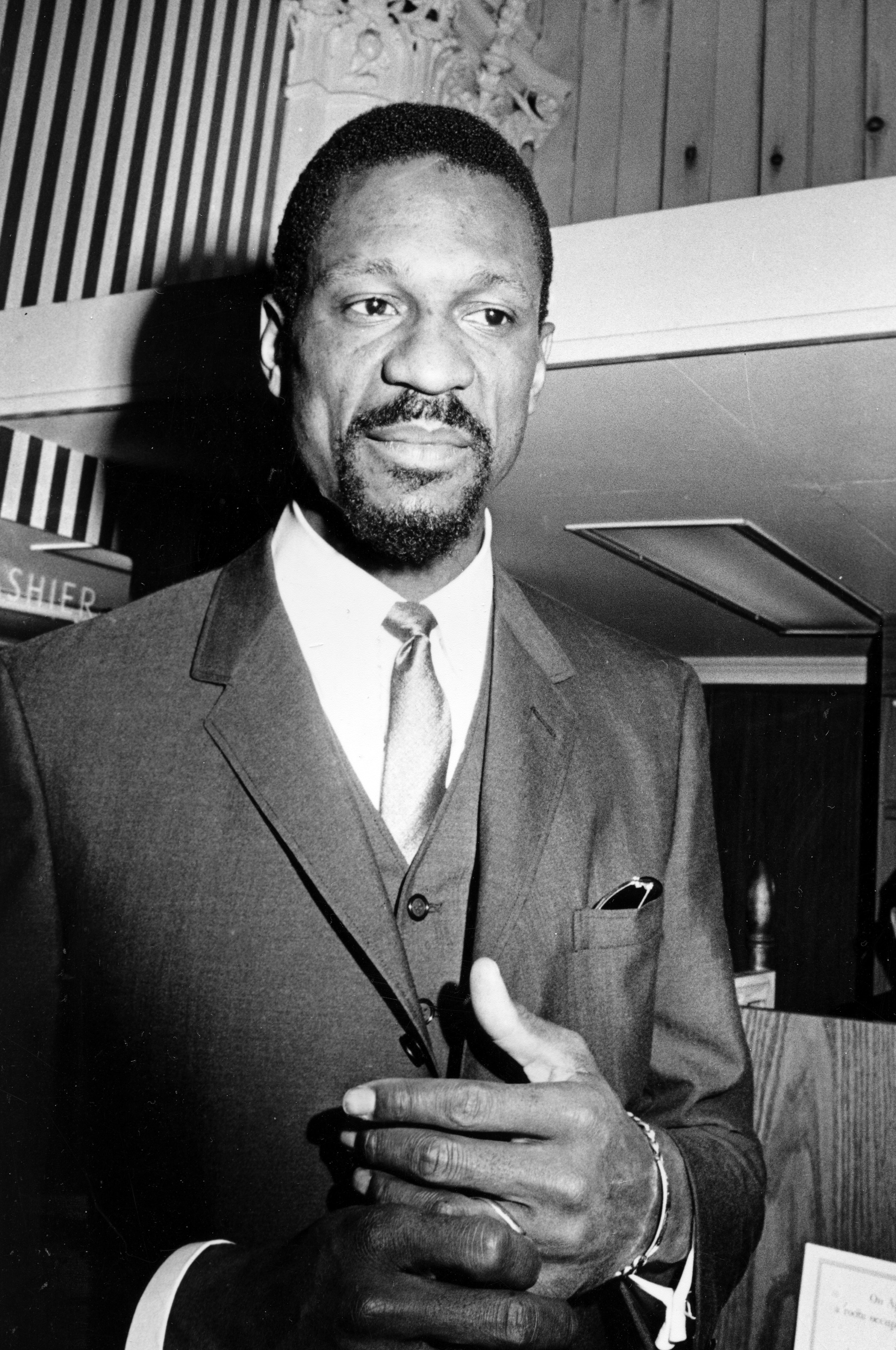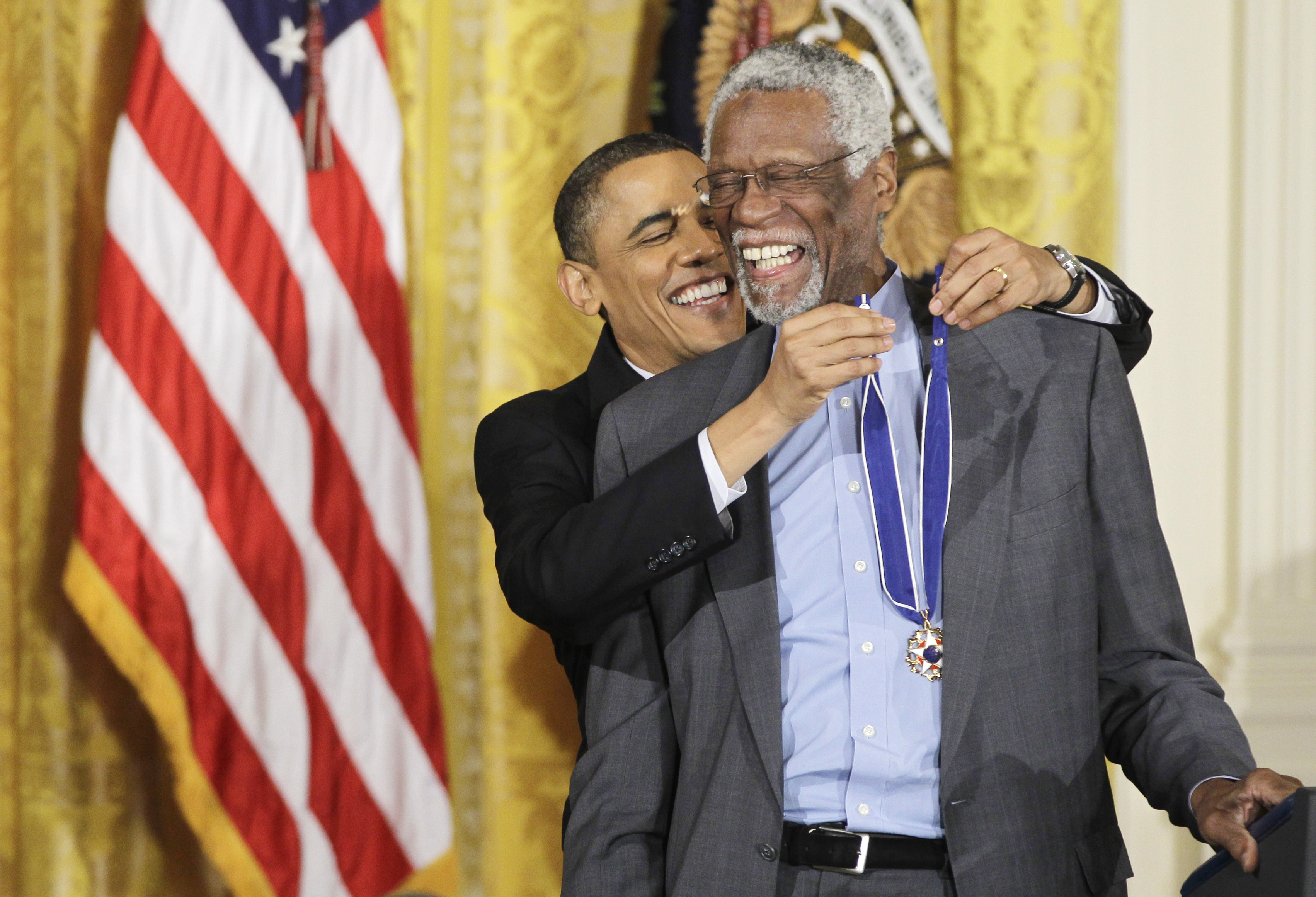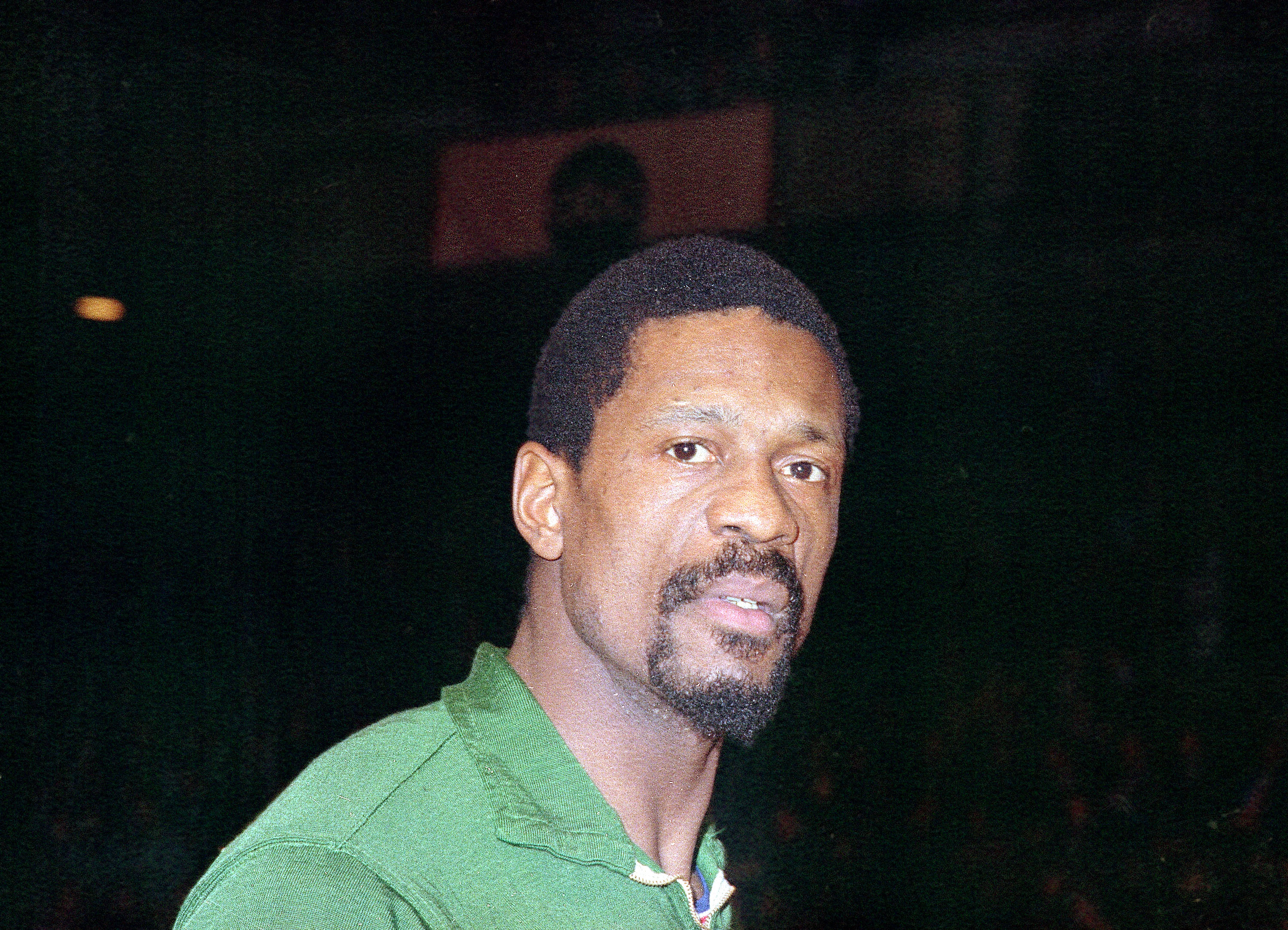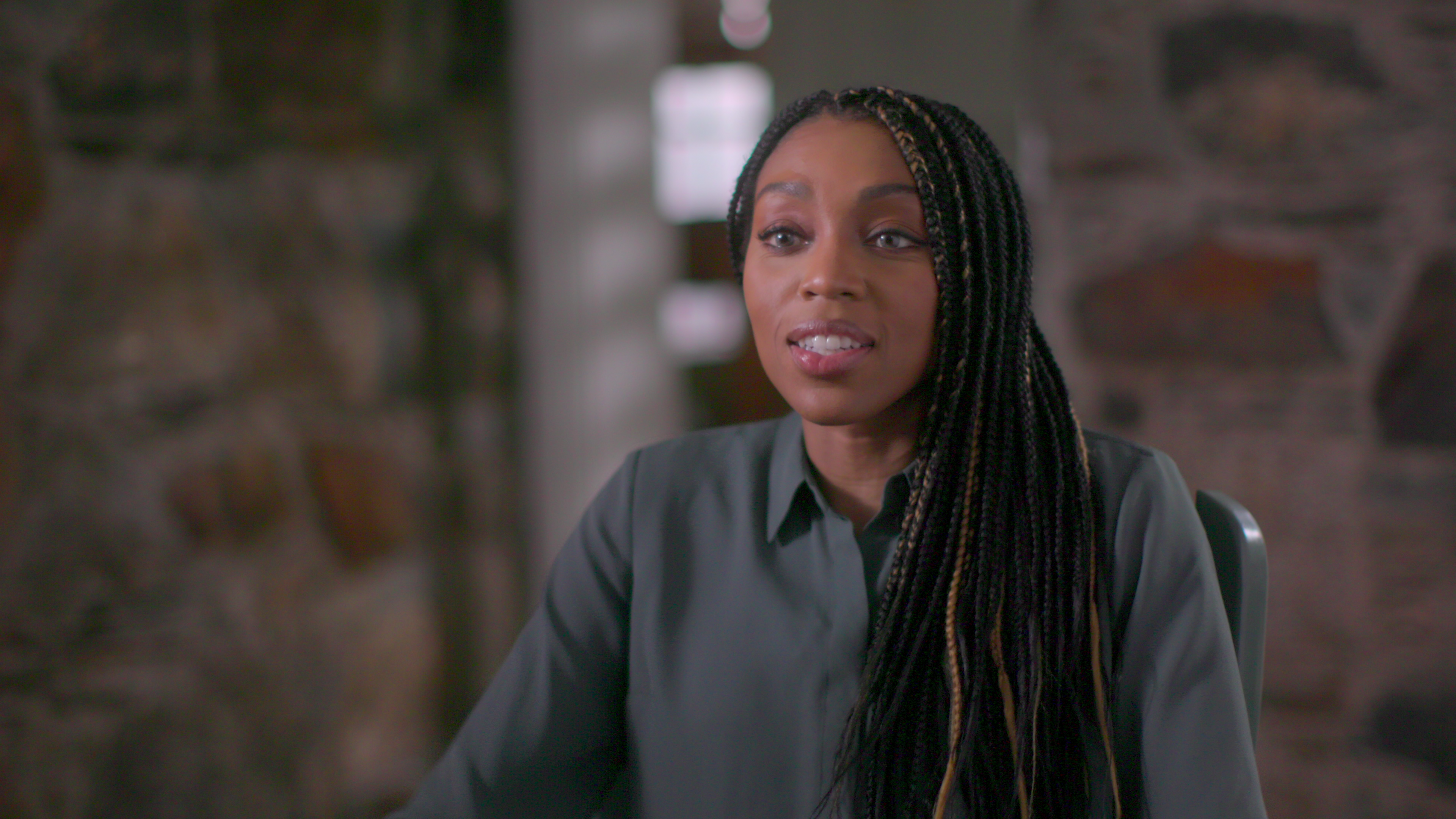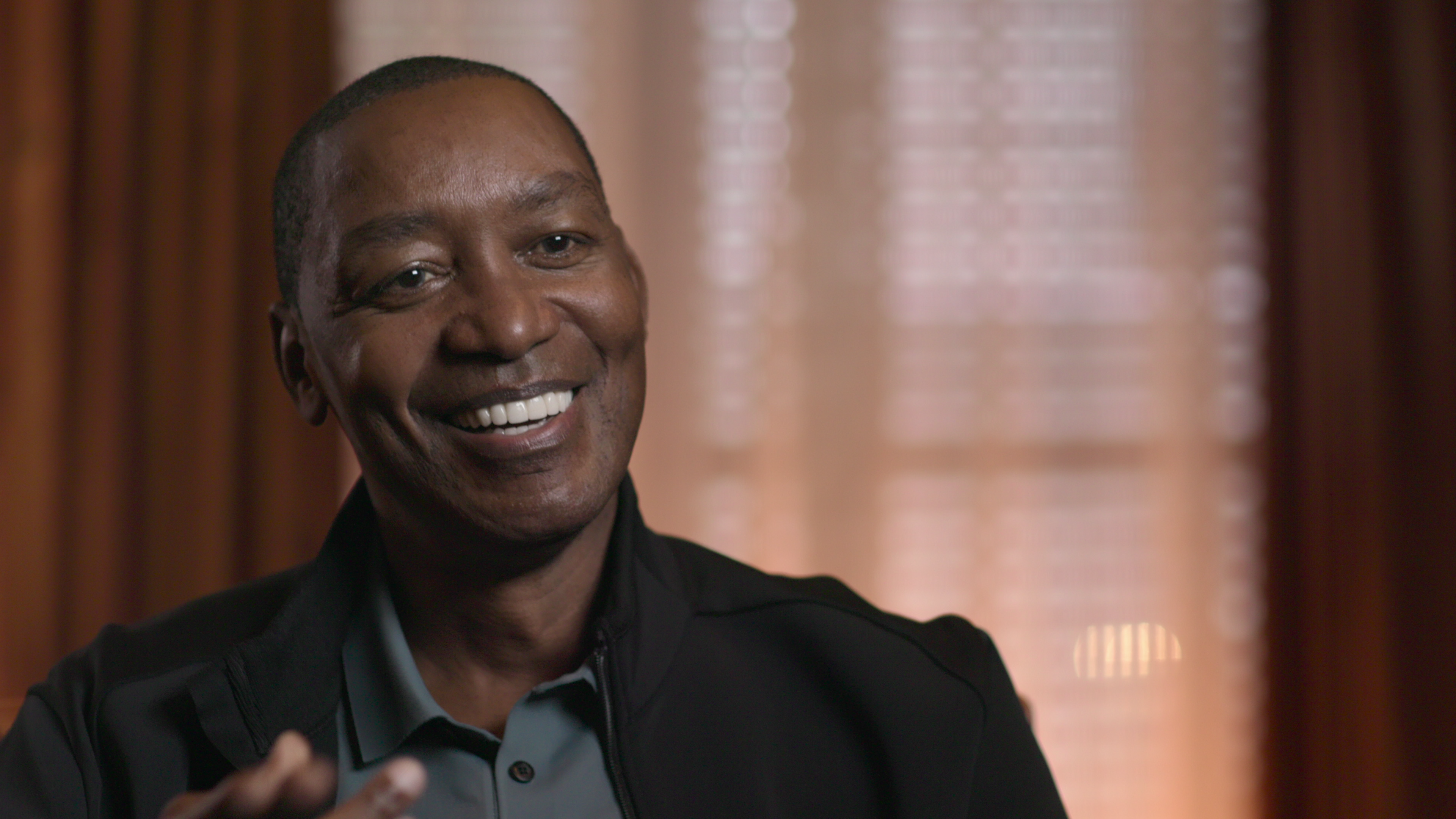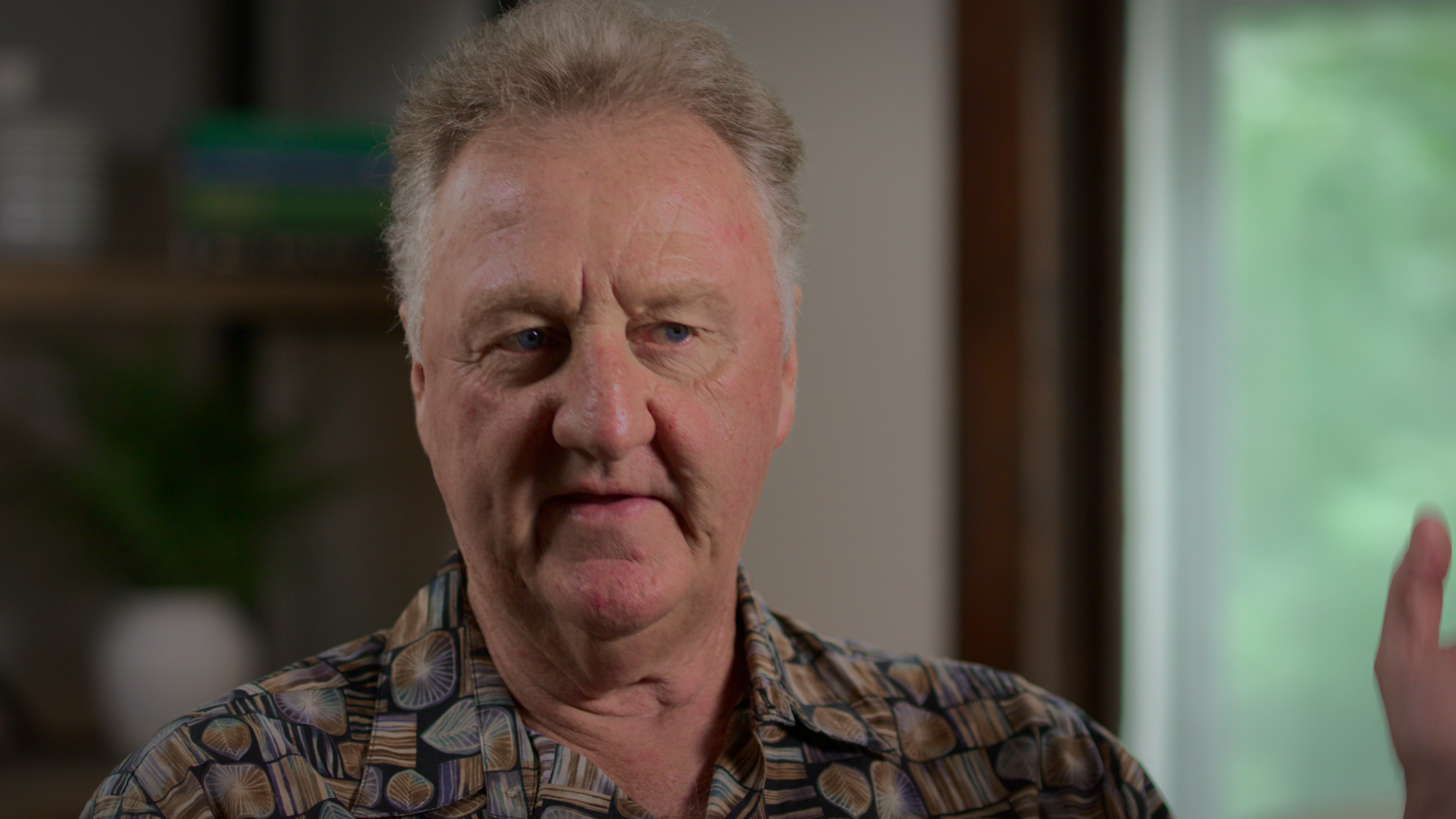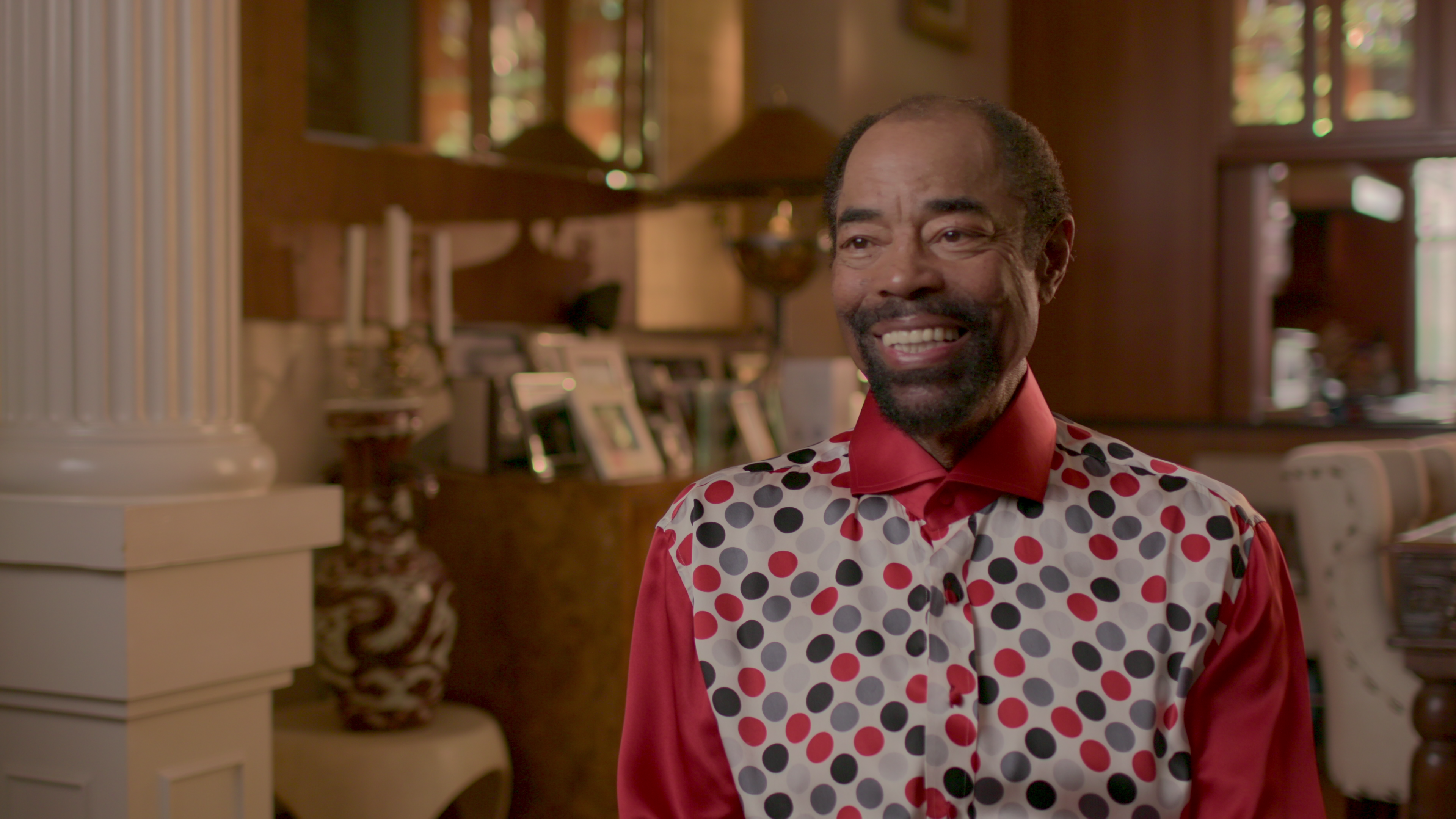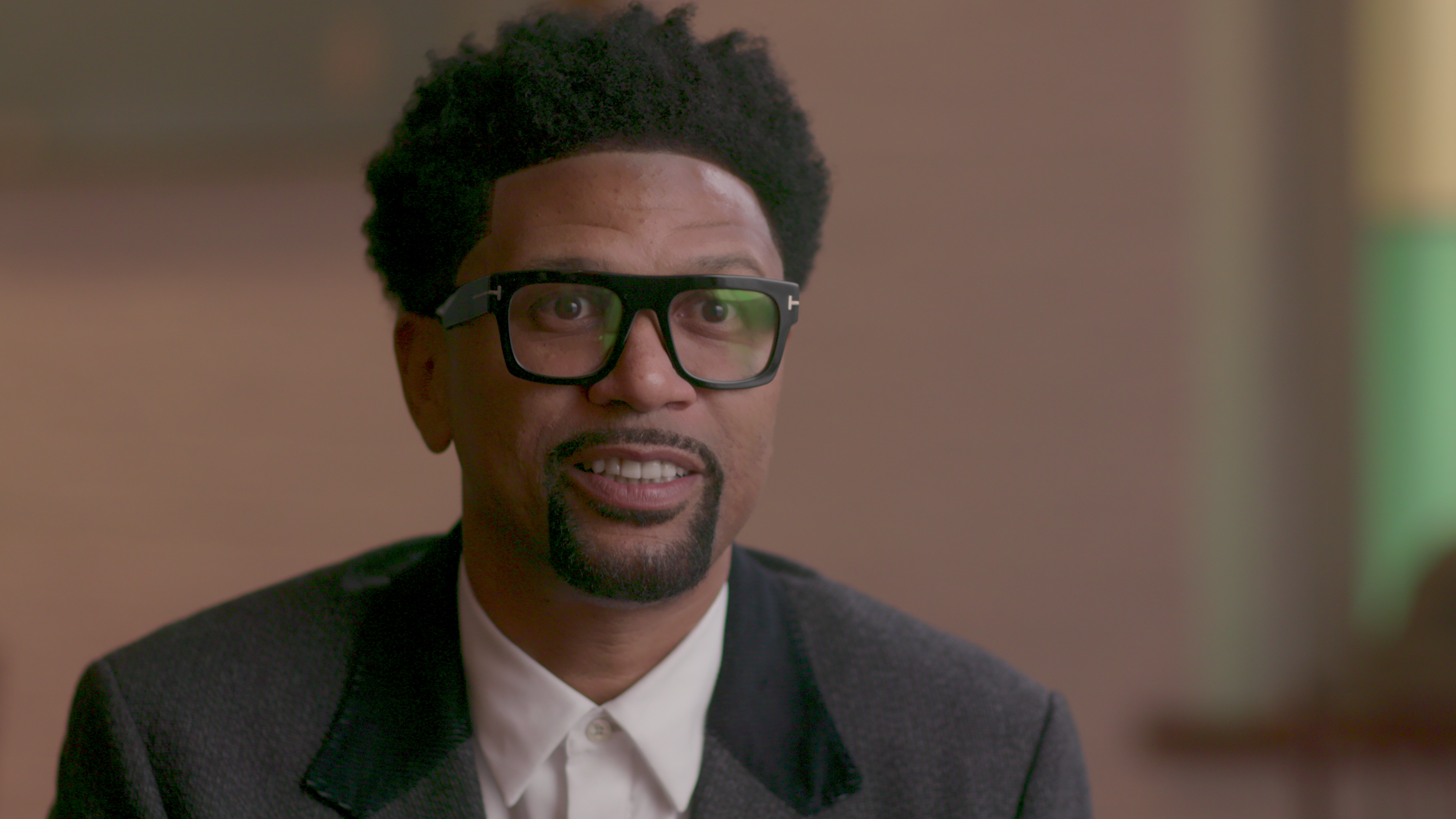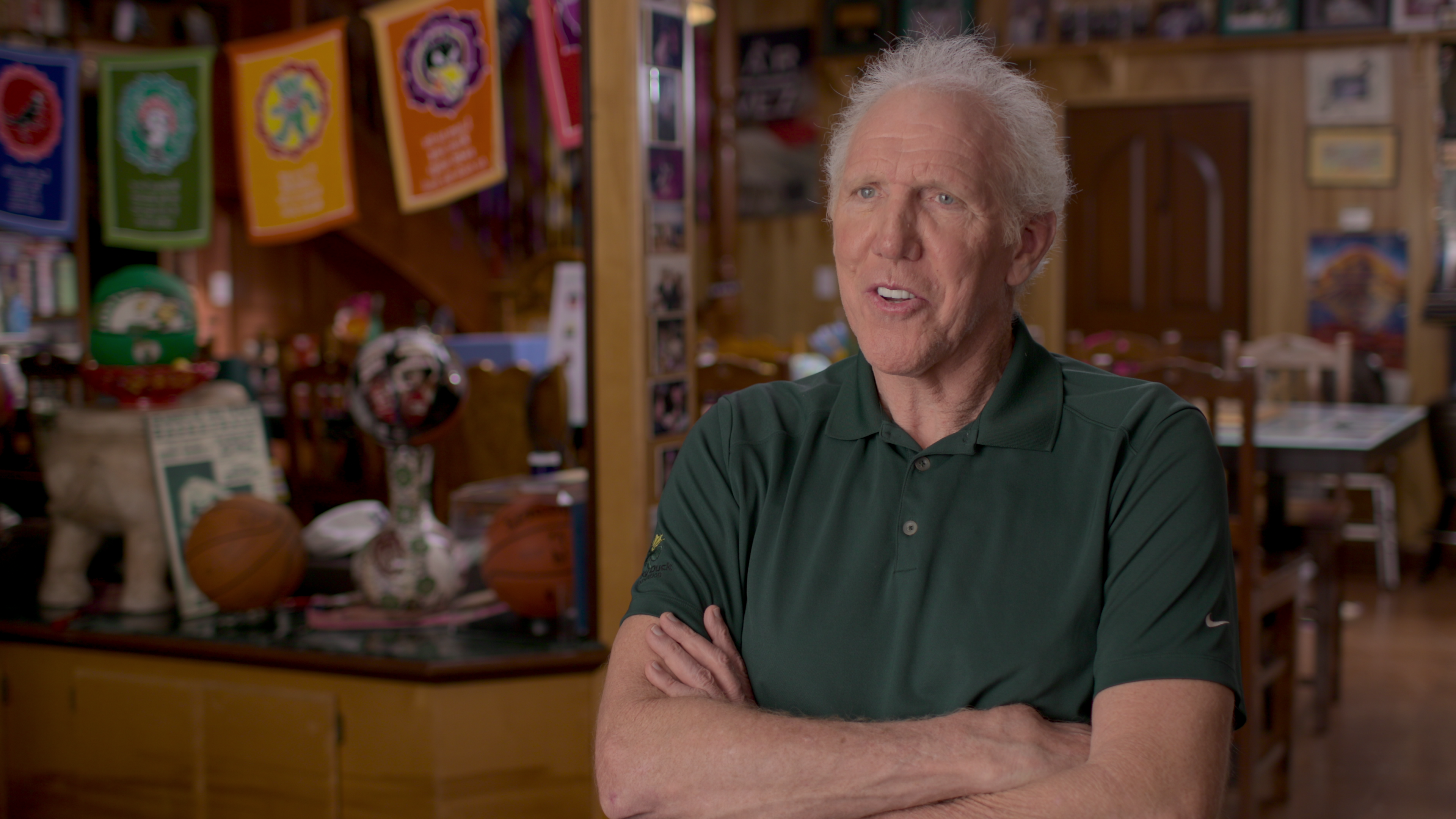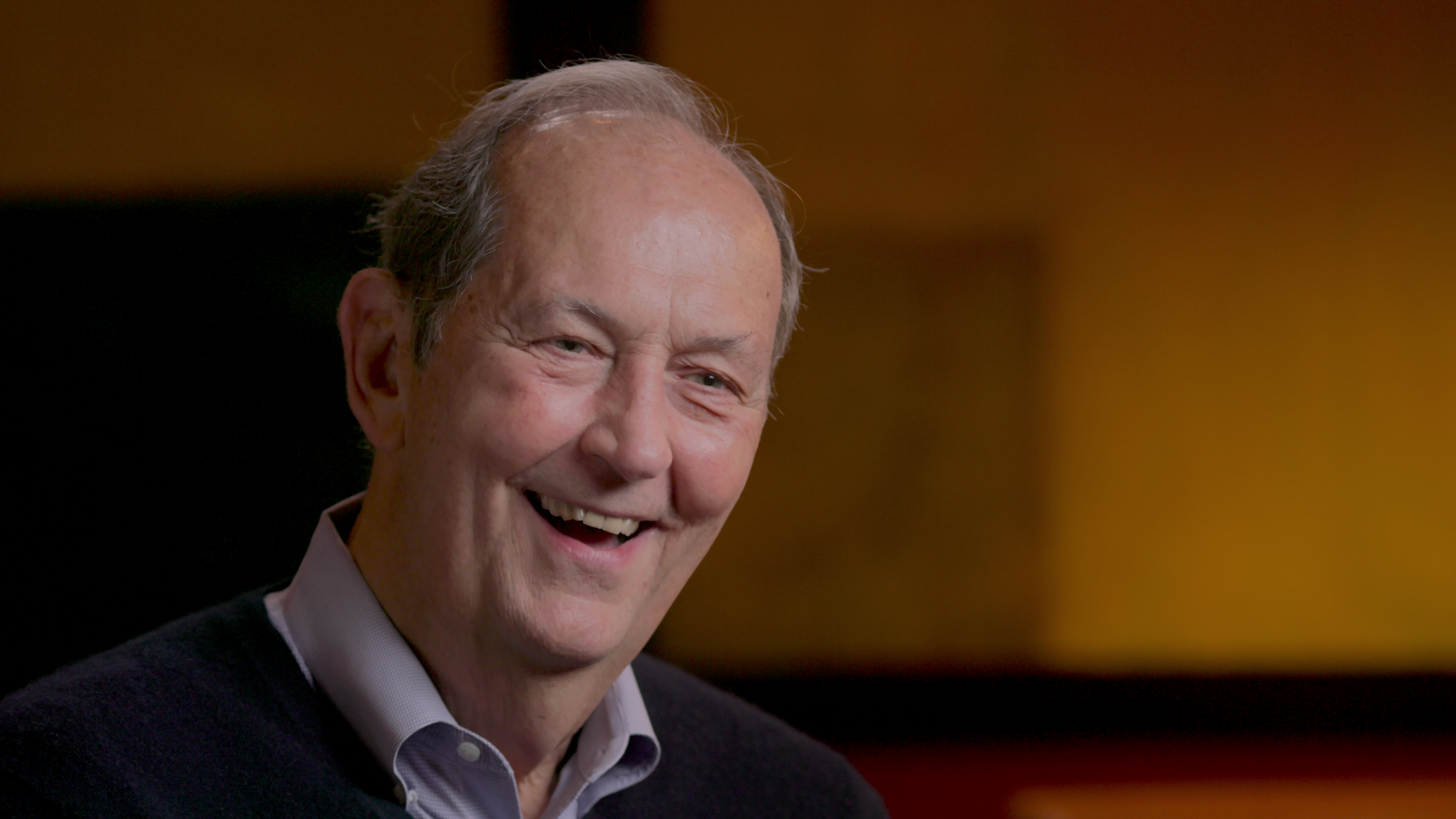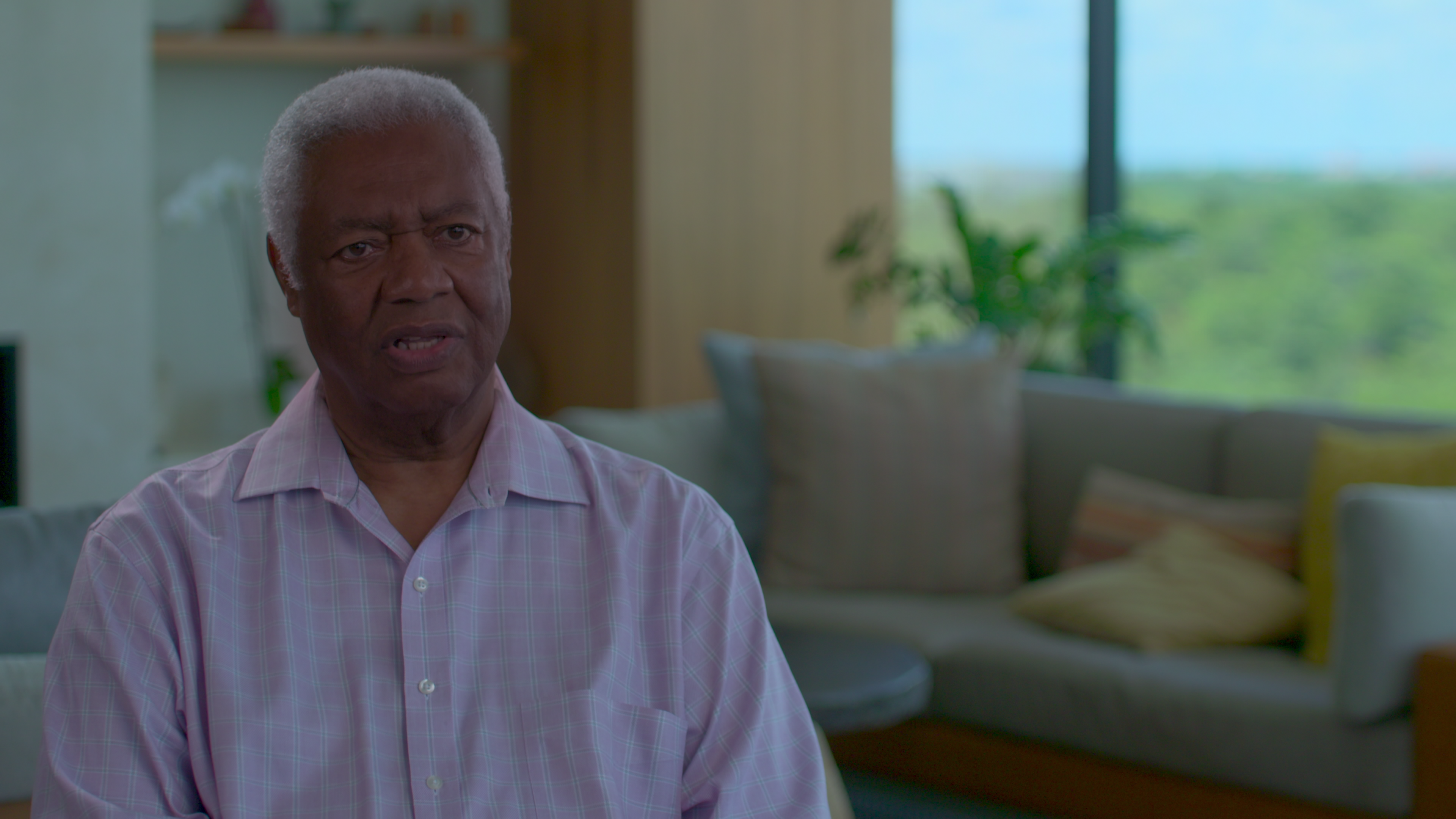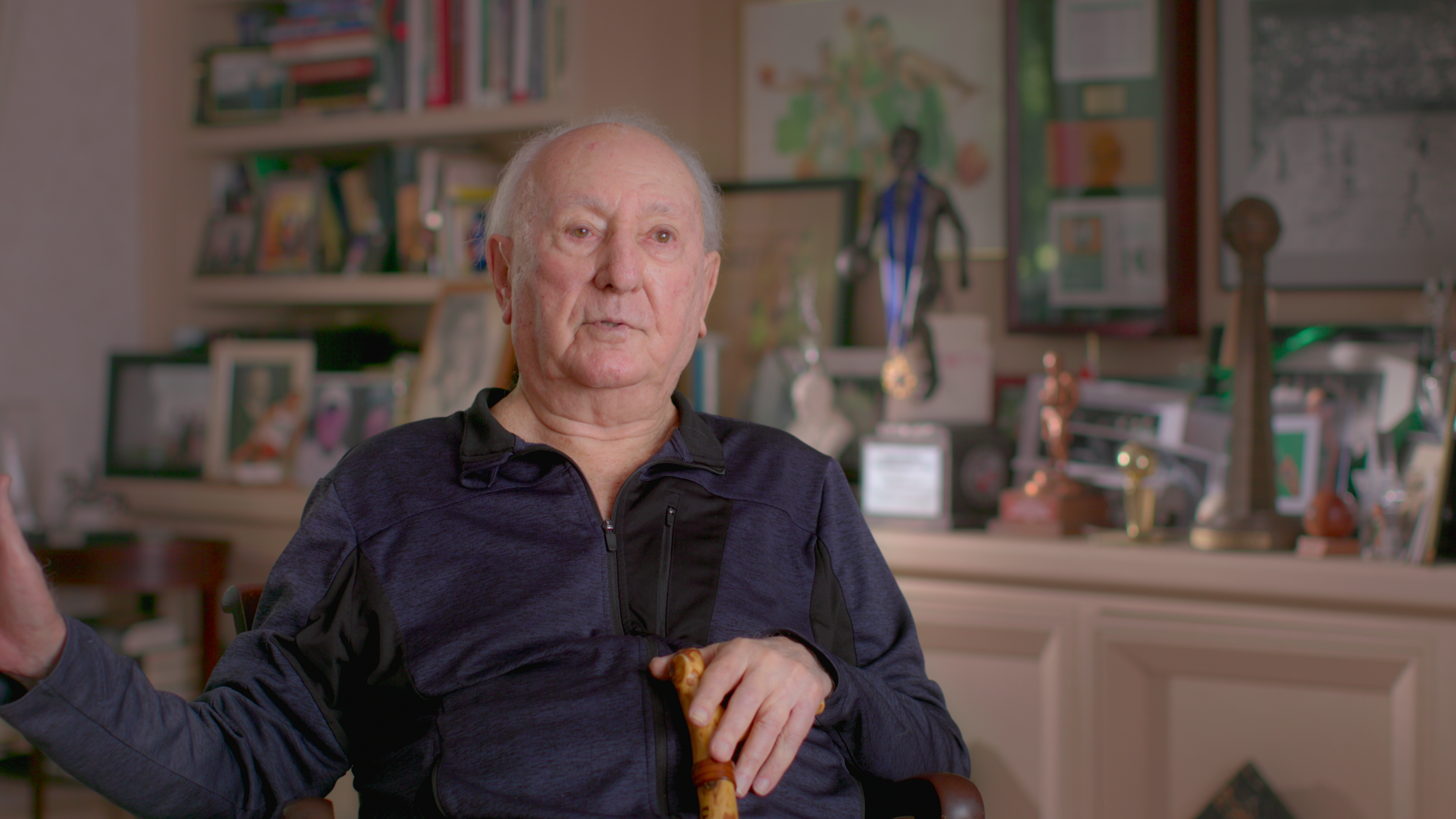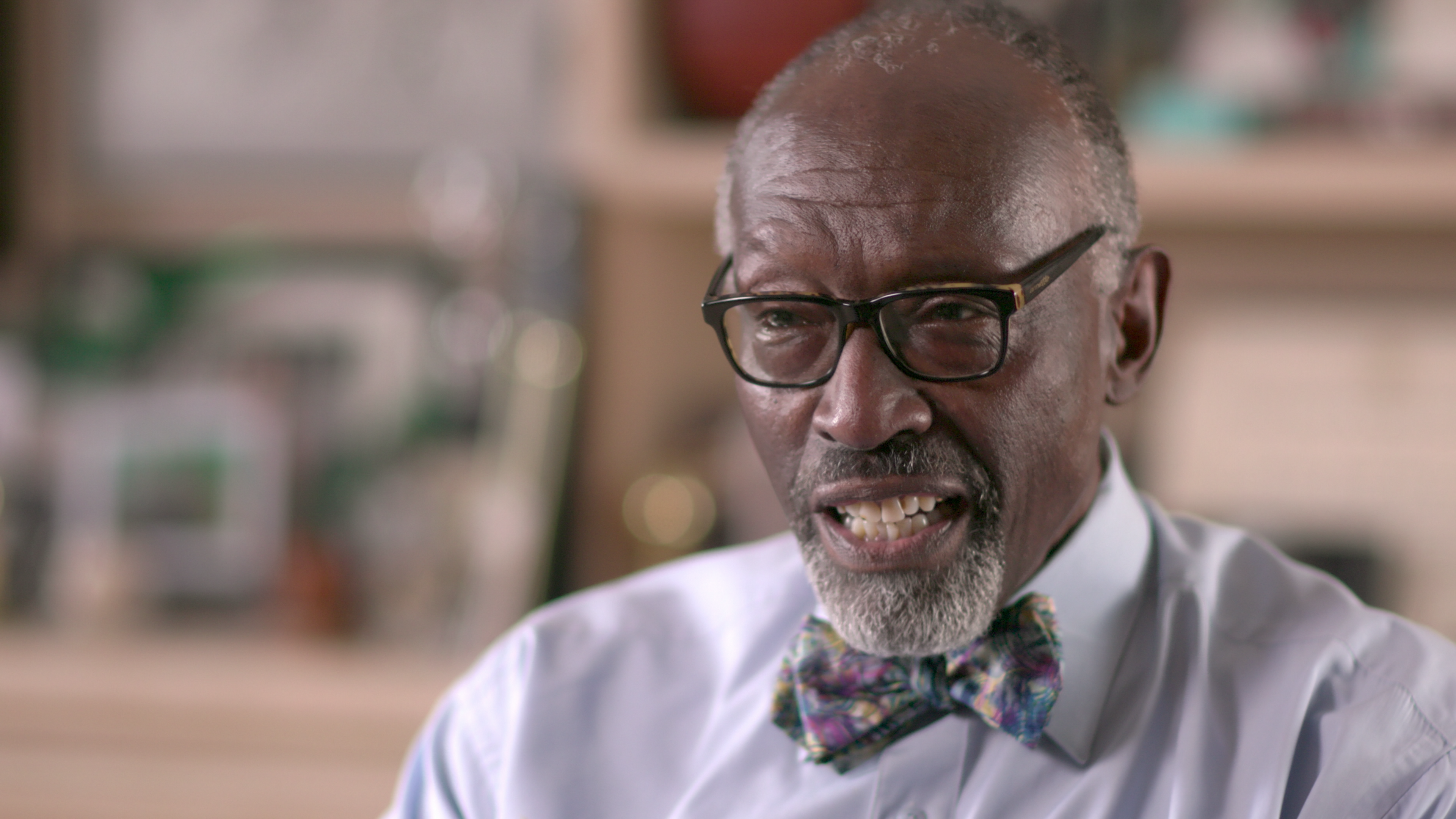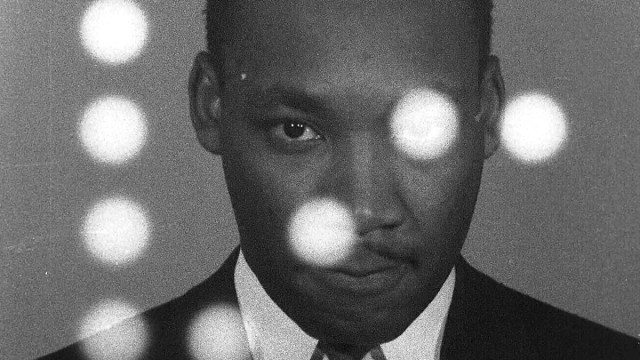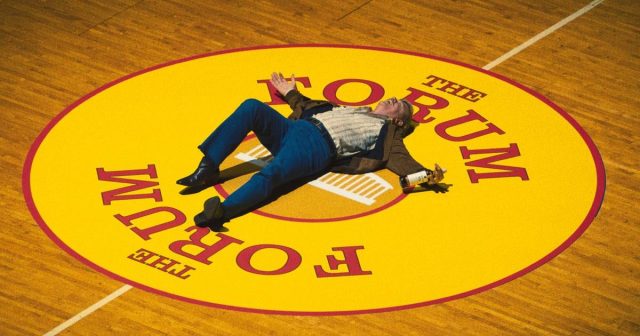TL;DR
- When former HBO Sports President Ross Greenburg approached Sam Pollard two years ago about doing a documentary on NBA legend Bill Russell, Pollard jumped at the chance.
- Bill Russell: Legend premieres on Netflix February 8 and includes the last interview with Russell, an 11-time NBA champion with the Boston Celtics.
- The two-part documentary, directed by Sam Pollard (MLK/FBI, Mr. Soul!), weaves interviews with archival footage and excerpts from Russell’s memoirs, to tell the basketball legend’s story.
When former HBO Sports President Ross Greenburg approached Sam Pollard two years ago about doing a documentary on NBA legend Bill Russell, Pollard jumped at the chance.
“I didn’t hesitate. I said yes, because I grew up in the ’60s,” Pollard told WNYC’s Allison Stewart. “I was very familiar with Bill Russell. I was familiar with the rivalry between Bill Russell and Wilt Chamberlain. I was excited to jump in and do this documentary.”
Bill Russell: Legend premiered on Netflix February 8 and includes the last interview with Russell, an 11-time NBA champion with the Boston Celtics. Russell died during the filmmaking process at his home in Mercer Island, Washington on July 31, 2022. He was 88.
The two-part documentary, directed by Pollard (MLK/FBI, Mr. Soul!), weaves interviews with archival footage and excerpts from Russell’s memoirs, to tell the basketball legend’s story. Corey Stoll narrates while Jeffrey Wright reads the excerpts from Russell’s memoirs.
Pollard told Clint Krute during an episode of the Film Comment podcast that one of the biggest challenges “was to say to ourselves, ‘when do we have too much basketball? When do we need to stop and go to something that he was doing off the court?’ And then when we got to his activities off the court, the question we had to ask ourselves was, ‘how long did we stay with that material before we get back to the basketball?'”
The director added that the classic narrative structure they originally had after the tease was to follow Russell’s life chronologically. But Pollard said they decided to show Russell getting drafted in 1956 by the Celtics instead “to create the drama.”
“[Y]ou [Pollard] play with a bit of the established or traditional sports documentary time structure by reversing what we would usually think was gonna happen after the tease that we would start with the origin story narrative,” scholar Samantha Sheppard said during the Film Comment podcast with Pollard and Krute. “But you move us and shift us along and then take us back to more of a familial historical narrative in that sense. And I think that in that way, in watching this, it’s like a trick. Often it does feel quite traditional. It feels even with the time change, still quite chronological at times.”
Sheppard, an associate professor of cinema and media studies in the Department of Performing and Media Arts at Cornell University, authored Sporting Blackness: Race, Embodiment, and Critical Muscle Memory on Screen, which explores sports documentaries and how they represent blackness.
“It [sports documentaries] finally gives these athletes larger context. It lets them speak, it lets them be culturally and critically framed, and it lets them, it lets us as audiences see their sport not divorced from the sociality in which they live,” said Sheppard. “So it’s not a narrative of shut up and dribble, it’s actually ‘tell us more and also show us the sport at the same time.’ So these films become really, really important as a way to provide a greater context to black athletes in ways that we have not seen them on the court, and more particularly off the court in terms of their social or cultural impact.”
Russell played with the Boston Celtics from 1956-1969. During Russell’s career, he scored a long list of achievements, including 11 NBA championships with the Boston Celtics (two of those as a player/coach), 5 NBA Most Valuable Player awards, 12 NBA All-Star games, two NCAA championships, and an Olympic Gold medal.
“What’s interesting about Russell is from one perspective, he seems like this imposing, 6’9 center for the Boston Celtics. Winner, winner, winner, right? But there’s the other side to Bill Russell where he’s extremely thoughtful,” Pollard told Esquire’s Alex Belth. “He’s extremely nuanced about everything in life, not only as a basketball player but as a Black man in America. And he had opinions about everything.”
READ MORE: The Thing That Made Bill Russell Great (Esquire)
Off the court, Russell was very involved in the Civil Rights movement, attending the 1963 March on Washington with Dr. Martin Luther King and the 1967 Cleveland Summit as well as speaking out against the Boston bussing issues.
“This man was a real activist,” Pollard told NECN’s Clinton Bradford. “He didn’t just want to be known as a great basketball player, which he was, he wanted to be known as a human being who was well rounded, who had other things on his mind and other issues he wanted to articulate and talk about.”
Pollard wouldn’t have been able to tell Russell’s story without the mountain of archival footage, stills, and articles dug up by archival producer Helen Russell.
“Documentary filmmaking is really being like an anthropologist,” Pollard told Film Comment’s Krute. “You’re doing a deep dive, you’re doing a tremendous amount of research. And the more research you do, the more you find gold, you really find gold.”
But because Russell played in the 1950s and 1960s, some of that footage wasn’t the greatest.
“The one challenge that we as documentarians always face is that when you see this old footage, you say, ‘It looks pretty crappy, and there wasn’t a lot of coverage,'” Pollard told Variety’s Addie Morfoot. “So, you have to sort of take a leap of faith. [We looked at the archives] and would say – ‘Is that Bill Russell?’ But we also knew that we were never going to get the same kind of coverage and quality we see today.”
Even with the at times grainy footage, Pollard still managed to weave a narrative that makes Bill Russell: Legend stand out.
“What helps set the documentary apart is that Pollard has assembled a treasure trove of vintage game footage and vintage interviews, as well as a wealth of new or new-ish interviews with Russell, [Bill] Cousy, Satch Sanders and many of their contemporaries including the aforementioned [Jerry] West, Bill Bradley, Walt Frazier and more,” wrote The Hollywood Reporter’s Dan Fienberg. “There’s a very good balance between the game footage, which accentuates Russell’s grace and athleticism, and the interviews, which concentrate on his intensity and, perhaps more than anything, his intellect.”
Russell was a student of the game, spending hours studying.
“[H]e understood that the game of basketball is just not about being physical, it’s about being mental,” Pollard told WNYC’s Stewart. “It’s about understanding how to position yourself and play against other players, where you should be, where one of your teammates should be to get the ball to take it down to court to get a basket, to know when to get a rebound and where to get the rebound and how to use that. When he was at USF with his future teammate, K.C Jones, they came up with the strategies. That’s what they would call themselves rocket scientists.”
Pollard added: “They were really thinking about the physics of basketball. It just goes to show you that athletes are very intelligent people, they’re not just jocks, they’re very intelligent. Bill took it to another level in terms of understanding the science and the physics of the game and how to use the game to his advantage.”
Alex Belth in his introduction to his interview with Pollard summed the documentary and Russell up: “Bill Russell: Legend reminds us that in the world of team sports, the biggest team player of them all was also perhaps the most singular individualist, too.”
Next, Listen to This
NOW STREAMING — BEHIND THE SCENES OF FAN-FAVORITE SERIES:
As the streaming wars rage on, consumers continue to be the clear winners with an abundance of series ripe for binging. See how your favorite episodics and limited series were brought to the screen with these hand-picked articles plucked from the NAB Amplify archives:
- The Bonkers Format for Peacock Series “Paul T. Goldman”
- True (True) Crime: Making Dennis Lehane’s “Black Bird”
- How “The Staircase” Is a True-Crime Drama in All the Ways
- Building the Insane (But Strangely Familiar) World of “Severance”
- “The Old Man:” Measured, Methodical and Jeff Bridges Punches Everybody
- “Bad Travelling:” Blur and David Fincher Rewrite the Rules for Animation

